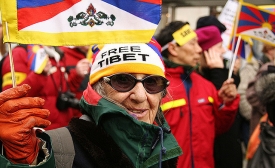china
Under the slogan "Innovation for Better Life", Israel will highlight innovation at its pavilion at Expo 2010 Shanghai along with traditional Jewish culture. This is the first time that Israel is building a national pavilion at a World Expo.
The pavilion consists of three areas — Whispering Garden, Hall of Light and Hall of Innovations.
We often get reminders that a new Administration in Washington means new leadership at U.S. Embassies overseas. Within a year of taking office, an incoming President generally will have nominated (and the Senate approved) new Ambassadors for all major overseas postings. In many foreign government establishments, these appointments are highly anticipated events, more closely watched than any foreign envoy’s arrival on Washington’s Embassy Row.
Ralph Waldo Emerson famously lamented "How much of human life is lost in waiting" and observers of U.S. public diplomacy these last few months could be forgiven for saying the same thing. While other areas of government have something to show for the first one-hundred days of the Obama administration, formal public diplomacy initiatives have been hard to find.
When will China ever learn? It’s not how loud you speak, or how many times you say something, but what you say that counts. Reports that the Communist Party of China (CPC) has launched a new English-language newspaper, the Global Times, should be greeted with the usual mixture of delight (yet more evidence of the Chinese jumping on the public diplomacy bandwagon) and cynicism (yet more evidence of the Chinese jumping on the public diplomacy bandwagon).

This research project examined the public diplomacy implications of pro-China demonstrations held in major cities in North America and Western Europe, within the time frame of the Tibetan Riot in March 14, 2008, and the Sichuan Earthquake in May 12, 2008.







